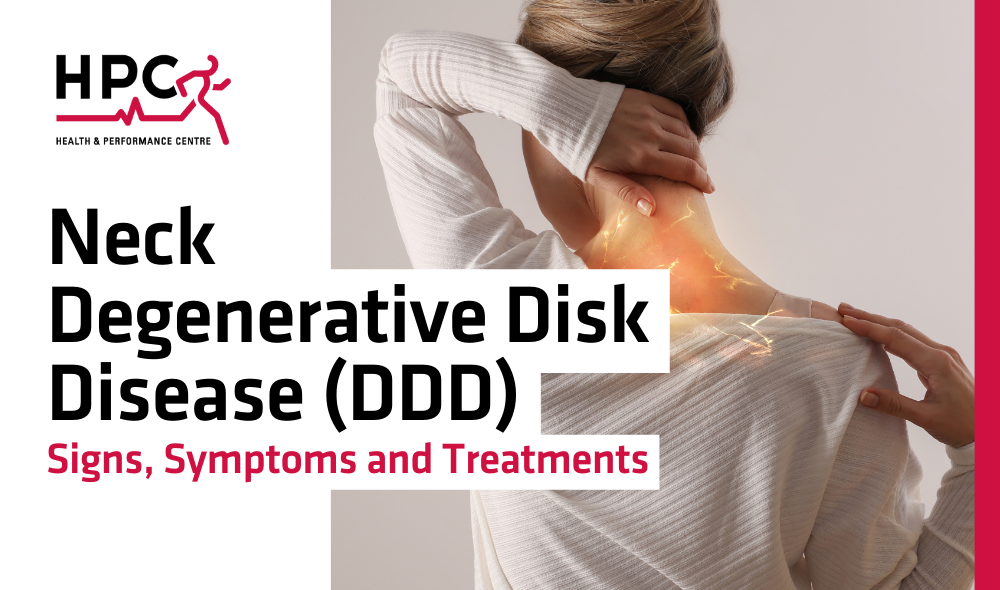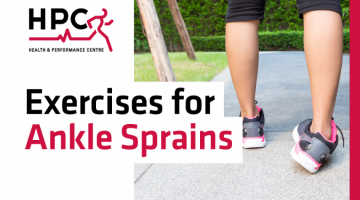How Chiropractic Can Help with Degenerative Disk Disease (DDD) | HPC Guelph

Degenerative Disk Disease (DDD) is a common condition characterized by the gradual wear and tear of vertebral discs, leading to neck and/or back pain. It can be caused by aging, physical activity, or sports injuries.
If you're experiencing any of the following signs and symptoms, it's crucial to seek professional help from a physiotherapist, chiropractor, or massage therapist:
- Neck or back pain
- Pain that radiates to the arms, hands, and thighs
- Increased pain after sitting, bending, lifting, or twisting
How is Degenerative Disk Disease (DDD) Diagnosed?
At our Health and Performance Centre (HPC) in Guelph, our team of highly skilled healthcare professionals is dedicated to diagnosing and treating DDD effectively. During your visit, our experienced physicians (sports medicine doctor, physiotherapist, chiropractor, or massage therapist) will review your medical history and conduct a thorough physical examination to determine the presence of DDD. To confirm the diagnosis, we may employ advanced imaging tests such as X-rays, magnetic resonance imaging (MRI), or computed tomography (CT) scans.
What are the Common Treatments for Degenerative Disk Disease?
When it comes to the treatment of Degenerative Disk Disease, our Health and Performance Centre offers a comprehensive range of options tailored to your individual needs. Our expert physiotherapists, along with sports medicine doctors, chiropractors, and/or massage therapists will develop a personalized treatment plan based on your physical examination results and personal goals. Rehabilitation of this nature plays a vital role in reducing painful flare-ups caused by DDD by focusing on stretching and strengthening the back muscles.
Your treatment plan may involve targeted stretching and flexibility exercises to improve movement and motion in your spine's joints and muscles. We will also provide you with specific strengthening exercises to enhance support for your spinal joints, relieving the workload on your spine. Additionally, our practitioners may employ manual therapy techniques to improve movement in tight muscles and stiff joints. They will also educate you on DDD and suggest adjustments to your posture when sitting, standing, bending, or sleeping to help alleviate pain and manage the condition effectively.
Adopting healthy habits in your daily life can significantly impact the progression of DDD. Regular exercise, such as walking, swimming, or low-impact aerobics classes, can help relieve pain and improve overall strength and mobility.
For more information about Degenerative Disk Disease or to learn about our exceptional physiotherapy, massage therapy, and chiropractic services at the Health and Performance Centre, we encourage you to reach out to us today. You can contact our clinic at 519-767-5011 or consult with your dedicated HPC chiropractor for more details.
Don't let Degenerative Disk Disease hold you back from living life to the fullest. Experience the expert care and support at the Health and Performance Centre in Guelph and take the first step towards optimal health and performance.
References:
https://www.choosept.com/symptomsconditionsdetail/physical-therapy-guide-todegenerative-disk-disease
https://www.arthritis.org/diseases/degenerative-disc-disease



